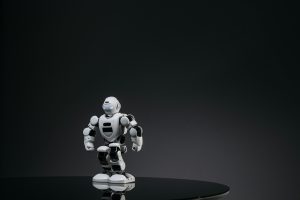Geoffrey Hinton forecasts the careers likely to stay resilient amidst AI progress
What Jobs Are Safe from AI Automation? Insights from Geoffrey Hinton
As artificial intelligence continues to advance rapidly, many professionals are wondering which careers might remain resilient in the face of automation. Renowned AI researcher Geoffrey Hinton offers some valuable perspectives on this topic, highlighting areas where human workers are likely to retain their importance for the foreseeable future.
Physical Labor: The Enduring Human Element
Hinton emphasizes that tasks requiring physical dexterity and manual craftsmanship are not easily replicated by AI. “It will take considerable time for AI to excel in physical tasks,” he notes, suggesting that skilled trades such as plumbing, carpentry, and other manual professions will remain stable. These roles demand nuanced physical interactions and problem-solving that AI systems currently struggle to emulate effectively.
Healthcare Industry: A Resilient Sector
According to Hinton, healthcare is poised to adapt alongside AI innovations rather than be replaced by them. The sector is expected to incorporate AI tools to enhance diagnostics and administrative efficiency, but the core patient care responsibilities are inherently human. Empathy, judgment, and complex decision-making in healthcare are qualities that AI cannot replicate, ensuring that medical professionals will continue to play vital roles.
The Skilled Worker Threshold
Hinton also warns that truly AI-proof jobs are those that require specialized skills and deep expertise. He states, “You would have to be very skilled to have an AI-proof job,” underscoring the importance of acquiring advanced skills that are difficult to automate. The future likely favors individuals who continuously develop their expertise and adaptability.
Final Thoughts
While AI promises significant transformations across various industries, certain careers—particularly those involving physical skills and specialized knowledge—appear to have more staying power. As professionals navigate this evolving landscape, focusing on developing nuanced, human-centric skills may provide a valuable safeguard against automation.
What are your thoughts on these insights? How do you see the future of work shaping up in your industry? Share your perspectives in the comments below.














Post Comment